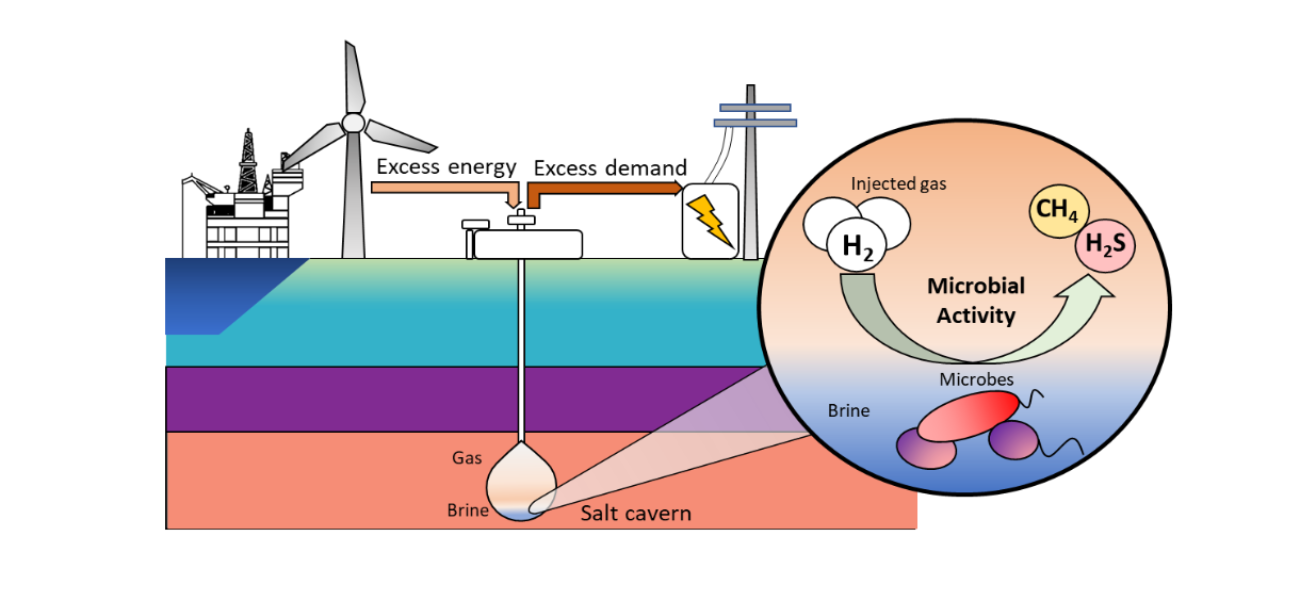Seniorforsker
- Bergen
nicd@norceresearch.no
+47 56 10 71 51
Bio-risk study on salt caverns


Kilde:
Nicole Dopffel
Illustrasjon
Renewable energy systems utilizing “Power-to-Gas” technologies require flexible, large-scale energy storage solutions for energy-rich gases like hydrogen. To balance expected fluctuations of electricity-production and -demand, this storage is essential to provide sufficient energy base load. Underground/subsurface storage has been proposed as a favorable solution. Promising spaces for large-scale storage of hydrogen are artificial salt caverns, which are leached into subsurface salt layers or salt domes .
However, these high saline environments harbor a diverse microbial community. Specially adapted extremophiles (halotolerant or halophilic) can live in or even require high-salt conditions. Although, high osmotic stress is suggested to cause energetic constraints, a higher salinity in brine does not necessarily lower the risks of microbial activity. In case of gas storage, the microorganisms will be in direct contact with the stored H2.
H2, being an excellent electron donor, is an important driver for microbial activity. One can assume that over time, hydrogen operations will lead to microbial colonization or activation of microbes. However, the specific types of microbial communities potentially living within salt caverns have not been extensively studied so far. Overall microbial presence is only indicated by increasing reports on microbial contamination of salt caverns.
In this project we want to gain important knowledge on the types of halophilic microbes present in salt caverns. And whether they are affected by- or will affect H2 storage.
This project is funded by Equinor.
Kontaktperson
Prosjektfakta
Navn
Bio-risk study on salt caverns
Status
CONCLUDED
Periode
01.01.22 - 30.06.23
Sted
Bergen